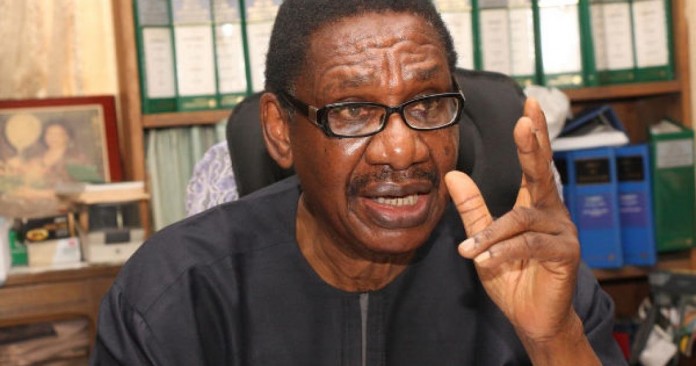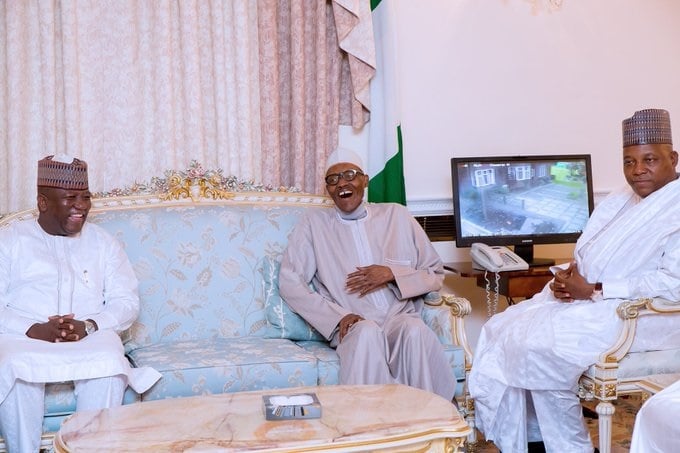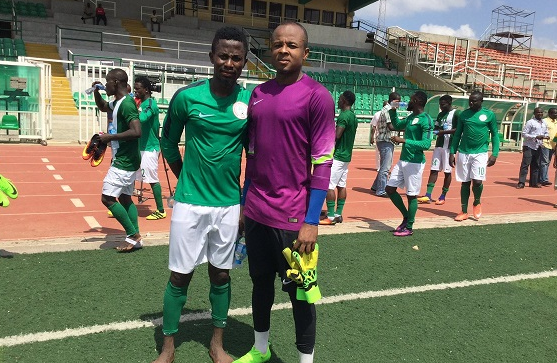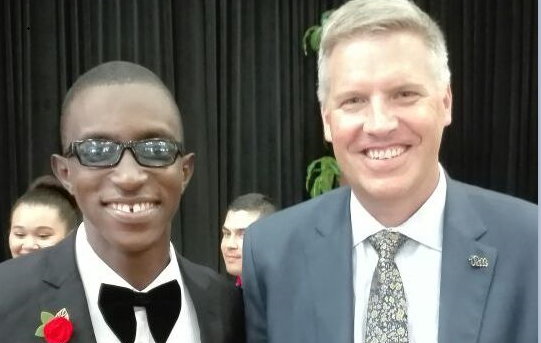Itse Sagay, chairman of the presidential advisory committee against corruption, says senior advocates of Nigeria (SANs) frustrating high-profile corruption cases should be denied the right of appearance during the court hearing of such cases.
Sagay said this on Wednesday at a media roundtable organised by Socio-Economic Rights and Accountability Project (SERAP) in Lagos.
Sagay, a SAN, said such measure should be part of “stiff” punishment for counsels, particularly SANs, that have “turned obstruction and frustration of proceedings on high-profile corruption cases into an art.”
He urged prosecuting counsels in grand corruption cases to always apply to reinstate any case struck out for want of prosecution.
Advertisement
He also said there is need to sensitise judges on the importance of the anti-graft war and its benefits to Nigerians.
“In cases requiring appeal, the authorities must apply for leave to appeal out of time, and prepare evidence and legal arguments thoroughly, including by inviting consultants to advise,” he said.
“Prosecuting authorities must insist on full application of sections 306 and 396 of the Administration of Criminal Justice Act, namely: No stay of proceedings under any circumstances – S. 306. Any preliminary objection must be taken together with the substantive issue – S. 396(2), and hearings shall be on a daily basis, but in exceptional cases, adjournments not to be in excess of 14 working days, may be granted. Such adjournments not to exceed five in any proceedings – S. 396 (3) and (4).
Advertisement
“A high court judge who is elevated whilst presiding over a criminal case should be allowed to conclude the case without any effect on his new status.
“The heads of various courts in the country should be sensitised about the very critical nature of the fight against high-level official corruption to Nigeria’s development and the welfare of its peoples.
“Pending the establishment of a special crimes court for the whole country, criminal divisions should be created in the federal and state high courts. Specially vetted and selected judges, known for integrity and self-discipline should be posted to man such courts.
“All suspected proceeds of crime should be placed under temporary forfeiture during the trial of a high-profile person. Prosecuting authorities should resort to non-conviction based asset forfeiture, where proof beyond reasonable doubt is difficult to achieve because of technicalities.”
Advertisement
Also speaking, Abubakar Malami, attorney-general of the federation and minister of justice, represented by Okoi Obolo-Obla, special assistant on prosecution to President Muhammadu Buhari, said the fight against corruption demands collective efforts.
“I admire what SERAP is doing. It is not Buhari’s work to fight corruption alone, it is all our fight. It is corruption that is fuelling this agitation by the different groups,” he said.
Ibrahim Magu, acting chairman of the Economic and Financial Crimes Commission (EFCC), said the commission is not working at cross purposes with the ministry of justice.
“We are cooperating with them. We have a wide range of corruption cases in concert with state agencies. The attorney-general office has the right to initiate new high-profile corruption cases and investigate it themselves without waiting for cases initiated by the EFCC,” he said.
Advertisement
1 comments








it is difficult to harass judges or lawyers into supporting the effort to rid the country of corruption when they are not willing to participate fully. This is supposed to be a democracy. Lawyers should be allowed to make their money and practice the way they see fit. Bottom line, government should get good lawyers to prosecute her cases. I think the government is more interested in naming and shaming, and this does not square with seeking true justice.